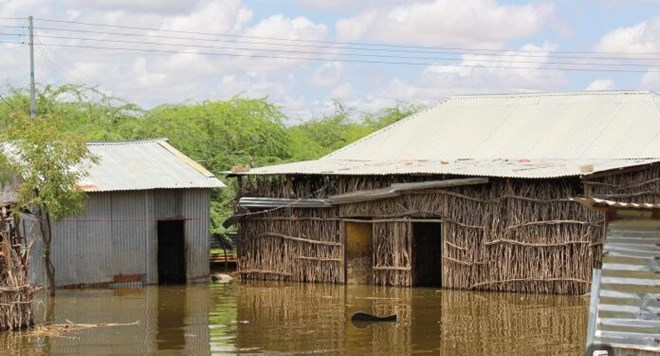
Monday May 22, 2023

A severe shortage of fresh vegetables has caused
local businesses in the central Somali town of Adado to close, as river
flooding in breadbasket districts like Beletweyne have cut off supply
routes.
Sahro Mohamed Ali, a mother of 10, has had nothing to sell
at her stall in Adado since 20 April, when trucks stopped arriving. She
normally sells tomatoes, bananas, onions and potatoes.
This had a
huge impact on Sahro’s family who depend on her business for a living.
She is currently making less than a dollar, down from her normal $5-6 a
day.“The vegetables are rotting on the road. When they became
expensive people couldn’t afford to buy so my stall closed. People can’t
afford the food because we are all in the same position, there is
little money,” she said.
Scarcity has doubled the price of
tomatoes from $12 to $24. Sahro paid $25 for a delivery of fresh produce
from Beledweyne two weeks ago, but the trucks took 11 days to reach
Adado and everything was spoiled.
“We don’t make any profit, and
we can’t save anything. If God blesses us we will see, and if not we
pray that we get a different path,” she said stoically.
“I’ll sit
in this place as long as I can, there is no meat or milk at home but
I’ll still sit at my stall. If I get half a dollar I will take it and if
I don’t get anything I will leave the place,” Sahro said.
She has
taken 25 kilograms each of flour, rice and sugar for her family on
credit and has a debt of $70. The $10 rent for her stall is overdue. She
also defaulted on her three children’s school fees of $26 in April and
fears they will be sent home.
As family breadwinner with a jobless husband, she is worried that her seven-year-old business will fold up.
Another vegetable seller in town, Ayan Mohamed Farah, has also had nothing to sell and no income for three weeks.
“I
support the family from the vegetable business. Everything has become
expensive, water has blocked the road, and prices are rising. When the
vegetables were cheap we made a profit but now we can’t even recover our
costs. I have no other income besides this stall, our living comes from
there,” she explained.
For the past six years Ayan has been
counting on selling 11 sacks of various fresh produce that she used to
have delivered from southern regions. Now there are some onions and
potatoes coming in from Ethiopia, but little else.
Her husband,
who herds their last remaining 30 goats that survived the drought
outside town, is selling off goats now to feed the family of six
children and elderly parents.
Galmudug ministry of commerce
officer for small and medium enterprise, Maryan Ali Osman, said the
flooding in agricultural areas had brought unemployment to an estimated
23,000 local people, who rely on the sale of fresh produce.
“The
small business people in Galmudug need help. They are facing hardships;
these people have lost their livelihood. You can understand a family
that loses a business that has been supporting them for a long time,”
she said.
Many of those now struggling had set up low-capital
grocery shops to make ends meet, she explained, after being hit by
prolonged drought and conflict.
If the supply routes remain closed until June, she warned that people in Adado area could be on the verge of famine.